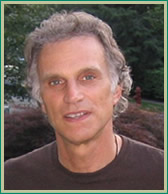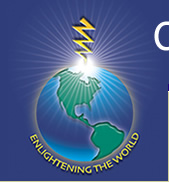
Unreasonable Forgiveness
|
 |
|
| Adam Sokolow Senior Advisor |
As I write this column, we are witnessing the worst environmental disaster in our nation’s history—oil is spewing uncontrollably into the Gulf of Mexico, a mile beneath the surface, because British Petroleum and Halliburton decided to save a measly half-million bucks by skimping on safety measures to provide an extra seal that could have contained the methane bubble that destroyed their deep-sea oil platform. This calamity comes on top of what has seemed a steady steam of bad news. We are in the midst of a recession brought on by the greed of some our most high-profile financial institutions. We’ve experienced a housing bubble and a credit crunch. The news media, like a distorted mirror, reflect back to us that we are embroiled in a culture war; we are all too willing to vilify ordinary folk who hold different points of view. And our national polls testify that many of us believe that our country is headed in the wrong direction and we are worried about our future.
But there’s something that we can do now that will help us maintain our equilibrium as we try to work out sustainable solutions to these shared problems. We can keep ourselves healthy and fit for the tasks ahead by practicing a simple form of emotional and spiritual hygiene, refreshing our spirit in the soothing shower of forgiveness.
There are basically two reasons to forgive; the first one is reasonable and the second one isn’t. Life is complicated, yes? We show up here without benefit of an owner’s manual, and it’s inevitable that we’ll make mistakes as we learn for ourselves the difference between right and wrong. Although we try to do the right thing, sometimes we may cause unintentional and unanticipated harm to others. Therefore, I’m willing to forgive, and I expect to be forgiven if I inadvertently screw up. And even if someone causes us harm—whether intentionally or though some careless lapse in judgment—but then wakes up and has a change of heart, and if they really feel remorse and try to make restitution for what they have done, then I believe that forgiveness should be proffered to them. Although uncomfortable, this is all somehow reasonable.
But now let’s ask the really tough question: Is there any virtue at all in forgiving those predators who are indifferent to how much suffering they cause others as long as they can get what they want? Personally, I’m lucky to be here. My Jewish grandparents immigrated to the United States from the Ukraine and Austria-Hungary just before the outbreak of World War I. That means my gene pool was safely in this country before Stalin of the Soviet Union and Hitler of Germany did everything in their power to make sure that I would never be born. Stalin murdered 7 million Ukrainians through starvation in the winters of 1932 and 1933. Hitler exterminated 6 million Jews throughout Europe during his reign of terror from 1933 to 1945. Closer to home, if you are black, chances are your history involves slavery; if you’re an American Indian your history involves cultural genocide. In fact, every single race, religion, and ethnicity has its own horror stories.
Perhaps forgiveness is not the right word in instances such as these. After all, who in their right mind would be willing to forgive these despicable creeps who have caused such unimaginable pain and destruction? Maybe we need a new way to describe something that is essential in the healing process so that we don’t have to continually pay double for the harm they caused. First we suffer from our actual loss, and then we continue to suffer if we’re unable to regain our emotional and spiritual equilibrium. We’ve all known or seen images of people who were never able to recover from some terrible event in their life; their faces either show the pain of the horror that they continually relive, or they reflect the anger in their broken hearts, as they continually lash out at others. It is almost as though their spirits have been infected by a painful pathogen. These people have become chronically ill and have lost their ability to love and find joy in life.
To heal such deep psychic wounds and to protect ourselves from such circumstances, we need to cultivate unreasonable forgiveness. This certainly puts us in a bind, for it places us smack in the center of a profound spiritual paradox: To heal ourselves, we must somehow learn how to forgive the unforgivable, so we are able to continue to love without the need for an immediate resolution to what seems an unsolvable problem. By doing so, we will no longer conceive of ourselves as helpless victims; instead our wounded hearts can then become a source of strength that enables us to remain whole during difficult times. Maybe it would help if we used the word “peace” instead of “forgiveness.”
So be at peace with yourself, be at peace with others, and be at peace with the natural forces of the universe. We are all spiritual beings living in the sacred world.
![]()
Center for Empowered Leadership ®
Email: info@cfel.org
Phone: 1.609.259.7911
